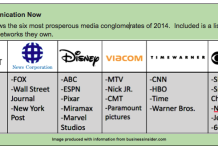The latest entry in “How Not To Handle A Crisis” comes from United Airlines. On Sunday, the world’s third-largest airline came under well-deserved fire after a passenger was dragged screaming and bloodied from a supposedly overbooked flight. After taking even more heat for blaming the passenger, United was not only forced to issue a full apology, but also admitted that the flight wasn’t even overbooked.
Passengers boarding United Express Flight 3411, bound from Chicago to Louisville, were told that the flight was overbooked, and were offered $400 to give up their seats. Once they were on board, however, the truth came out. Passengers were told that four United crew members needed to get on this particular flight or another United flight was in danger of being canceled. A United manager offered passengers first $800, then $1,000, to give up their seats. When there were no takers, United randomly bumped four passengers.
One of them was David Dao, a doctor from Elizabethtown, Kentucky. When a United employee told him he needed to get off, Dao refused, saying that he had several appointments the following morning and wouldn’t be able to keep them if he spent the night in Chicago. She called airport security, who dragged Dao off the plane like a rag doll while passengers yelled, “Oh my God!” and “Look what you did to him!” Two Twitter videos of Dao being dragged off the plane went severely viral.
@united @FoxNews @CNN not a good way to treat a Doctor trying to get to work because they overbooked pic.twitter.com/sj9oHk94Ik
— Tyler Bridges (@Tyler_Bridges) April 9, 2017
@United overbook #flight3411 and decided to force random passengers off the plane. Here's how they did it: pic.twitter.com/QfefM8X2cW
— Jayse D. Anspach (@JayseDavid) April 10, 2017
He briefly got back on the plane, incoherently saying, “I have to go home,” before being given tissues to staunch the bleeding in his mouth. Ultimately, Dao was taken off the plane on a stretcher, and is now undergoing treatment in a Chicago hospital for undisclosed injuries. One of the officers who dragged Dao off the plane has been placed on administrative leave, and city officials admit that procedures weren’t followed.
United CEO Oscar Munoz initially issued a statement saying that the situation was “upsetting” to the entire United team, and apologizing for having to “re-accommodate these customers.” That didn’t play very well on Twitter.
Nice to know "re-accomodate" on United now means "drag you violently out of your seat."
— Meg (@girlnthetardis) April 10, 2017
.@united will 're-accomodate' you next. pic.twitter.com/gG04c5UYyU
— Philmonger (@phillipmbailey) April 10, 2017
Excuse me while I "re-accommodate" my @united app. You can keep my points… I won't be needing them. #BoycottUnitedAirlines pic.twitter.com/vwY0aGZCup
— Matthew Lambert (@matthewmlambert) April 10, 2017
Even more preposterous than "re-accommodate" is @United referring to the "involuntary de-boarding situation." pic.twitter.com/TUQlAywBsX
— Jake Tapper (@jaketapper) April 10, 2017
We're all busy here @united. Can you cut to the chase and fire Oscar Munoz and your Chicago ground crew? I'm sorry: RE-ACCOMMODATE THEM pic.twitter.com/X40hmcd3AU
— Keith Olbermann (@KeithOlbermann) April 10, 2017
Cleveland Browns offensive tackle Joe Thomas probably had the best reaction.
Dear #united, I had to "re-accommodate" someone once pic.twitter.com/MP3ZJDv85m
— Joe Thomas (@joethomas73) April 10, 2017
The furor grew even more intense on Monday night, when CNBC got its hands on an internal memo Munoz sent to United employees. Munoz denounced Dao as “disruptive and belligerent,” and applauded the crew for adhering to company policies. However, according to passenger Jason Powell, Dao wasn’t belligerent at all. Instead, he was “very polite, matter-of-fact,” even though he was as upset as anyone would have been in that situation.
Even before that memo became public, the hashtag “#NewUnitedAirlinesMottos” had already started trending on Twitter. The combined effect sent United’s stock into a tailspin. At one point, United’s stock price had dropped almost four percent. By the close of business, United stock was down 1.1 percent, wiping out $255 million of its market capitalization. According to financial analyst Andy Swan, Munoz “restarted the incident” with his memo, leading stockholders to question whether he was capable of managing a crisis.
Granted, $255 million is a mere rounding error for a company that was still worth $22.5 billion even after Tuesday’s loss. But it was enough for Munoz to realize that he’d stepped in it. Just after the markets closed on Tuesday, Munoz issued a much more contrite statement apologizing for the “truly horrific event” that took place on Sunday. He offered an unreserved apology to Dao and the other customers, saying what he should have said on Monday–“No one should ever be mistreated this way.”
He also promised to reexamine how it handles getting crew members to their next flight, overbooking, and its relationship with law enforcement. United officials also dropped their public contention that the flight was overbooked. Instead, they now admit that the passengers were bumped to make room for crew members who had to get to Louisville.
By then, however, United was already feeling the heat from federal and state elected officials. New Jersey governor Chris Christie called for an end to regulations that allow airlines to overbook flights. In a rare outbreak of bipartisanship, Senate Commerce Committee chairman John Thune and ranking Democrat Bill Nelson wrote Munoz to demand a “full accounting” of the incident, and called United’s handling of it “unsatisfactory.”
That’s not the only unsatisfactory thing about this affair. The other factor is how multiple administrations from both parties allowed a wave of megamergers that resulted in the airline industry essentially being dominated by three airlines. The airlines thus have little incentive to treat their customers better. This affair should be a wake-up call–but it should have never gotten to this point.
(featured image: screenshot courtesy CNN via Jayse Anspach)





